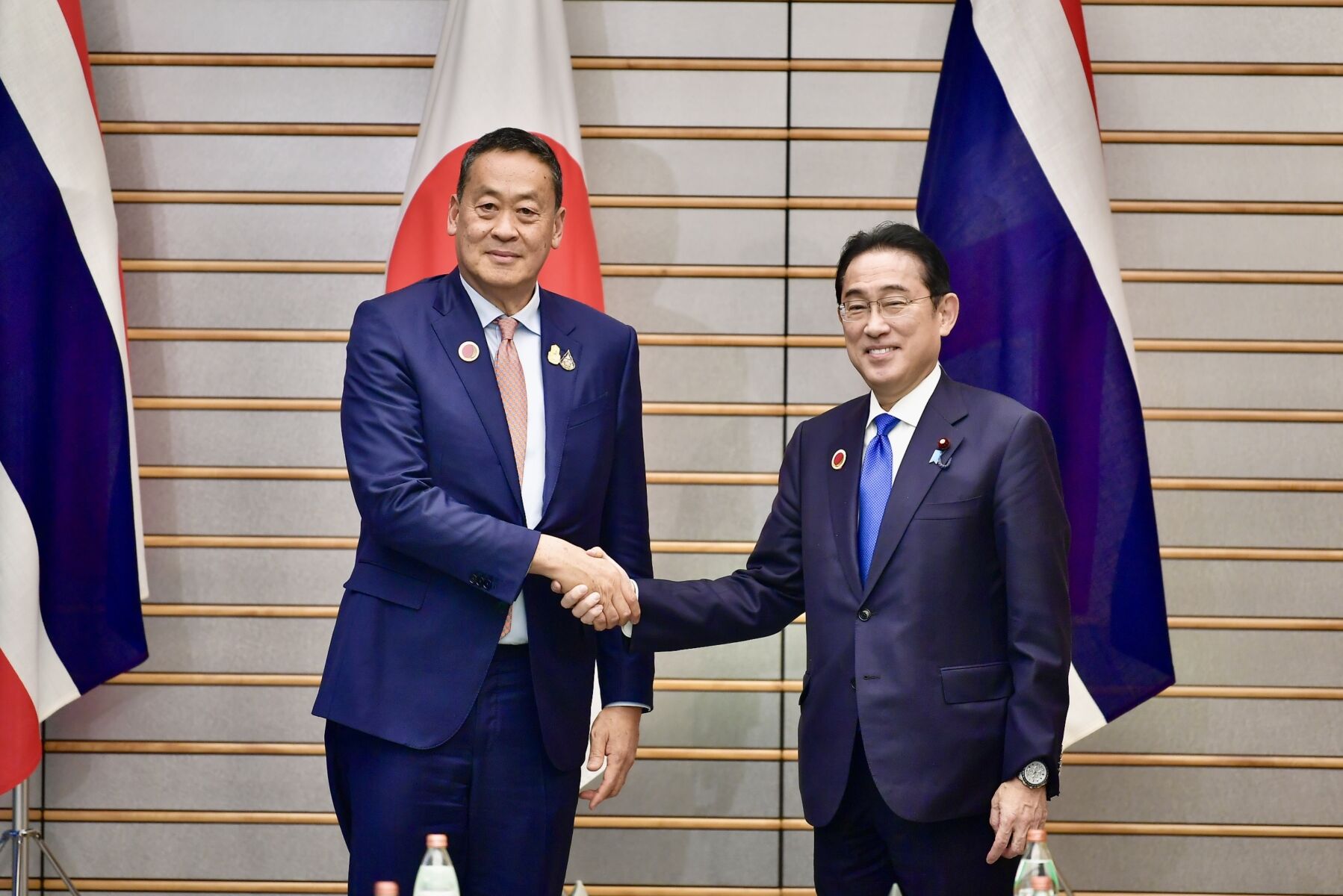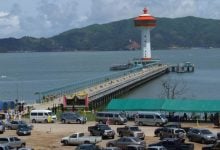Thai government plans 50-year concession for Land Bridge megaproject

The Thai government is contemplating a 50-year concession for the successful bidder of the Land Bridge megaproject, a venture worth one trillion baht and projected to break even within 24 years. This was revealed by Transport Minister Suriya Jungrungreangkit during the Thailand Landbridge Roadshow event in Tokyo, Japan, where he and Prime Minister Srettha Thavisin sought to attract Japanese investors.
Suriya stated that the winning bidder would receive a comprehensive 50-year concession encompassing shipping lines, logistics, port management, property development, and industrial investment management. He also revealed plans for a new law that would facilitate the surrounding areas’ development, based on a cost-benefit analysis.
Thailand’s strategic geographic position and extensive transport network make it an ideal candidate for becoming a logistics hub. The Land Bridge project, linking Chumphon on the Gulf of Thailand’s eastern coast to Ranong on the Andaman Sea, could effectively reduce transport times and logistics costs by avoiding the Malacca Strait’s congestion.
Prime Minister Srettha, addressing the roadshow attended by nearly 30 Japanese companies, highlighted the Land Bridge as a viable alternative for feeder ships when the Malacca Strait traffic is projected to surpass its capacity by 2030.
The project will purportedly reduce transport times by five days and save at least 4% on logistics costs for goods moving from Japan, China, and South Korea to Southeast Asia, Central Asia, and the Middle East. A similar reduction in time and costs is expected on routes between eastern China, Taiwan, Vietnam, the Philippines, and Southeast Asia, Central Asia, and Middle Eastern countries.
Srettha also suggested that the Land Bridge could significantly boost trade between Thailand, Laos, Cambodia, Myanmar, and southern China and the Philippines, Indonesia, Central Asia, and Middle Eastern countries, saving about 35% in costs and reducing shipping time by 14 days.
The average transportation time saving across all sectors is estimated to be four days, with about 15% savings on logistics. Approximately 33.2 million containers, or about 23% of all containers passing through the Malacca Strait, are expected to utilise the Land Bridge.
The Land Bridge could also significantly reduce costs if used for regional crude oil distribution, with Srettha estimating savings of at least 6%. He also emphasised the project’s potential to create at least 280,000 jobs for Thais and boost the country’s GDP by 5.5% per year when fully operational, reported Bangkok Post.
The Land Bridge project, which was approved for continuation by the Srettha administration in October, includes deep-water ports in Ranong and Chumphon, a motorway, a railway system supporting freight and passenger transport, and a pipeline network.
Suriya also discussed potential collaboration opportunities on transport with Japanese Minister of Land, Infrastructure, Transport, and Tourism, Saito Tetsuo, including the development of a rail network under the Mass Rapid Transit Master Plan in the Bangkok Metropolitan Region (M-Map).
Government spokesman Chai Wacharonke reported that the prime minister was pleased with his visit and discussions with the Japanese business community. Srettha himself shared on his X (formerly Twitter) account that the visit went smoothly and his invitation for Japanese investors to invest in Thailand was well received.
Latest Thailand News
Follow The Thaiger on Google News:


























